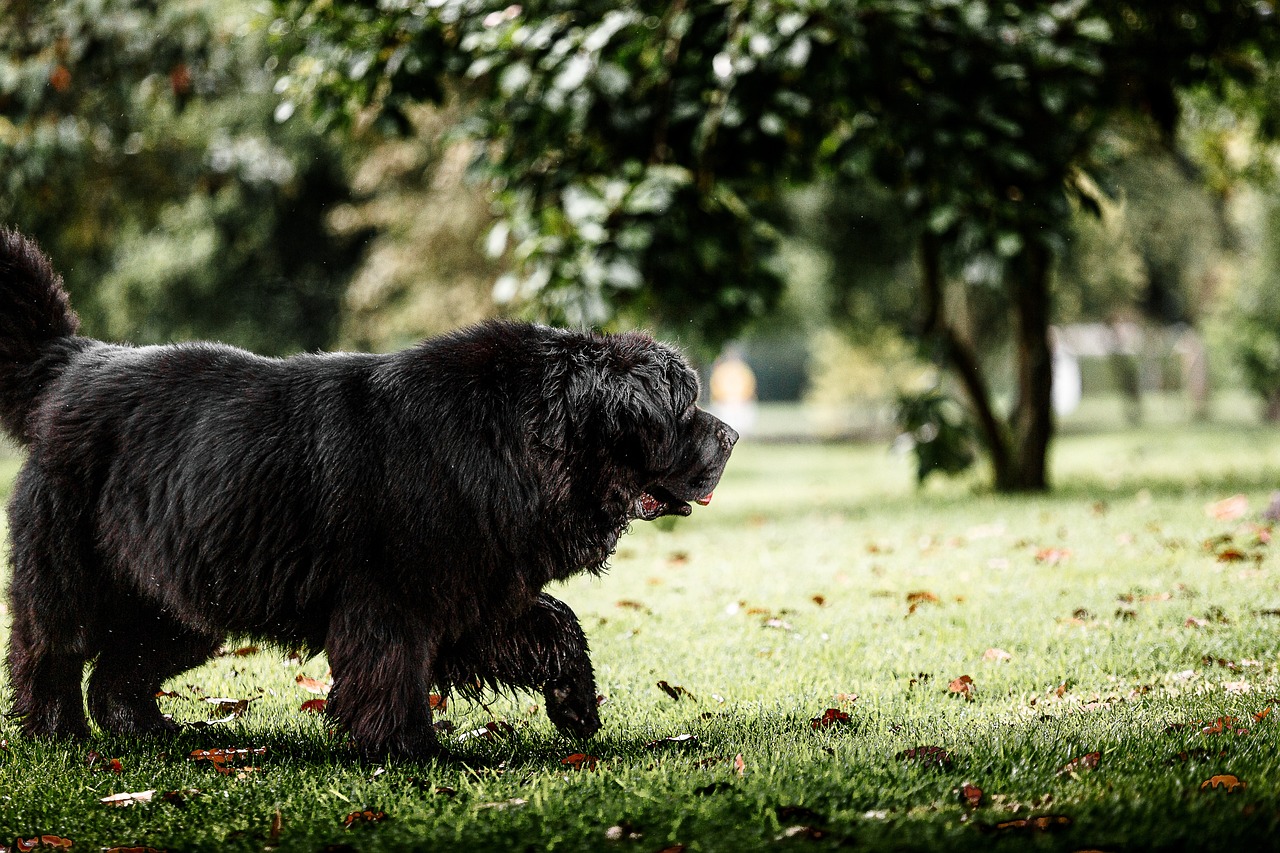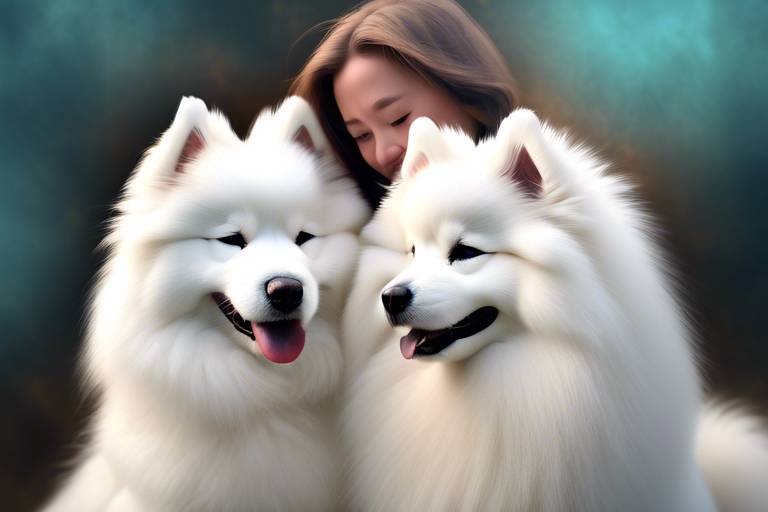The Unique Characteristics of Whippets
Whippets are a breed that effortlessly captivates dog lovers with their unique combination of elegance, speed, and affectionate temperament. Known for their sleek, athletic build, they are often compared to a finely tuned sports car—fast, agile, and undeniably stunning. Their physical attributes are just the tip of the iceberg when it comes to what makes Whippets so special. With a gentle disposition and a playful spirit, they are not just pets; they become cherished members of the family. In this article, we will delve into the distinctive traits of Whippets, exploring their physical appearance, temperament, health considerations, and overall suitability as pets. Whether you’re considering adding a Whippet to your family or simply want to learn more about this fascinating breed, you’re in for a treat!
Whippets possess a sleek, athletic build characterized by long legs and a narrow waist, reminiscent of a greyhound but with their own unique flair. Their short coat, which can come in a variety of colors and patterns, adds to their visual appeal, making them easily recognizable. From solid colors to intricate brindles, the diversity in their coats is nothing short of eye-catching. Whippets typically weigh between 25 to 40 pounds and stand about 18 to 22 inches tall at the shoulder. Their delicate features, including a long, narrow head and expressive eyes, give them a dignified yet playful look. This combination of grace and strength not only makes them beautiful to behold but also allows them to excel in activities like agility and lure coursing.
Known for their gentle and affectionate nature, Whippets are friendly dogs that thrive in family environments. They have a reputation for getting along well with children and other pets, making them an ideal choice for families. Their playful demeanor is infectious, and they often bring joy to households with their antics. Whippets are not just pets; they are companions who genuinely enjoy spending time with their humans. Their playful spirit often manifests in bursts of energy, where they zoom around the yard like a flash of lightning, only to collapse in a heap of relaxation moments later. This adaptability makes them suitable for various lifestyles, whether you’re an active individual or someone who enjoys a more laid-back routine.
Despite their bursts of speed, Whippets are surprisingly adaptable when it comes to energy levels. They require regular exercise to stay healthy and happy, but they don’t need hours of strenuous activity each day. A couple of good walks and some playtime in the yard are usually sufficient to keep them content. They are known to enjoy short bursts of running—think of them as the sprinters of the dog world. However, they also appreciate their downtime, curling up on the couch for a cozy nap after a play session. This balance makes them perfect for families who enjoy a mix of outdoor adventures and quiet evenings at home.
Whippets are naturally playful and have a knack for making games entertaining. Fetch is a favorite pastime, and watching them sprint after a thrown ball is a sight to behold. Their agility and speed make them exceptional athletes, capable of reaching impressive speeds in a matter of seconds. This playful spirit not only keeps them physically fit but also fosters a strong bond with their owners. Engaging in playtime is essential for their mental stimulation and happiness, so be prepared to join in on the fun!
One of the most endearing qualities of Whippets is their affectionate nature. They are known for forming strong bonds with their families and often seek out cuddles and companionship. Picture this: after a long day, you settle down on the couch, and your Whippet snuggles up beside you, resting their head on your lap. It’s moments like these that make them feel like family. Their loyalty is unwavering, and they thrive on love and attention from their humans. This bond not only enriches their lives but also adds a layer of joy and fulfillment to your own.
Whippets are intelligent dogs that respond well to positive reinforcement training methods. They have a natural curiosity and desire to please, which makes training a rewarding experience. Early socialization is crucial, as it helps them adapt to various environments and situations. Consistent training not only helps them develop good manners but also strengthens the bond between you and your Whippet. With the right approach, you’ll find that they can learn commands quickly, making them a joy to train.
While generally healthy, Whippets can be prone to certain genetic conditions. Regular veterinary check-ups and a healthy diet are essential for maintaining their well-being and longevity. Being proactive about their health can prevent many issues down the line and ensure that your Whippet remains a happy and active member of your family.
Like any breed, Whippets may experience specific health problems, such as hip dysplasia and certain heart conditions. Awareness of these issues is key for owners, as it allows for preventive measures and timely veterinary care. Regular exercise, a balanced diet, and routine vet visits can help mitigate these risks.
With proper care, Whippets typically live between 12 to 15 years. Understanding their health needs can contribute to a longer, healthier life for these beloved companions. Providing them with a loving environment, proper nutrition, and regular exercise will ensure that they thrive for years to come.
- Are Whippets good with children? Yes, Whippets are known for their gentle nature and tend to get along well with children.
- How much exercise do Whippets need? They require regular exercise, but short bursts of activity and some playtime are usually sufficient.
- Do Whippets shed a lot? Whippets have short coats and are considered low-shedding dogs.
- How do I train a Whippet? Use positive reinforcement methods and start training early to help them develop good manners.

Physical Appearance
Whippets are truly a sight to behold, possessing a sleek and athletic build that sets them apart from many other dog breeds. Their long legs and narrow waists create a silhouette that is both elegant and powerful, a testament to their history as racing dogs. When you see a Whippet in motion, it’s like watching poetry in motion; they glide effortlessly, showcasing their speed and agility. But it’s not just their physique that makes them striking. Their short coat, which comes in a dazzling array of colors and patterns, adds to their visual appeal. From solid shades to intricate brindles, each Whippet is unique, making them easily recognizable in any setting.
In terms of size, Whippets typically stand between 18 to 22 inches tall at the shoulder and weigh around 25 to 40 pounds. This makes them a medium-sized breed, perfect for those who want a dog that’s not too big but still has a presence. Their ears are another charming feature; they often fold back when the dog is relaxed, giving them an endearing look that melts hearts. When it comes to grooming, Whippets are relatively low-maintenance. Their short coat requires minimal brushing, making them ideal for busy owners who may not have the time for extensive grooming sessions.
One of the most fascinating aspects of their appearance is their expressive eyes. Often described as soulful, Whippets have a way of communicating their emotions through their gaze. Whether they are excited for a walk or simply lounging around the house, their eyes seem to tell a story. Additionally, their tails are long and tapering, often held high when they are happy or excited, further enhancing their lively appearance.
Overall, the physical characteristics of Whippets not only contribute to their beauty but also reflect their energetic and playful nature. They embody a perfect blend of grace and strength, making them not only wonderful companions but also a breed that captures the hearts of many dog lovers around the world.

Temperament and Behavior
When it comes to the temperament and behavior of Whippets, these dogs truly shine as one of the most delightful breeds you can encounter. Known for their gentle and affectionate nature, Whippets are the kind of dogs that can effortlessly charm their way into your heart. They have a reputation for being friendly and sociable, making them excellent companions not just for families but also for individuals and other pets. Imagine having a dog that greets you with enthusiasm after a long day, wagging its tail and ready to cuddle up on the couch. That’s a Whippet for you!
Whippets are naturally playful, which means they thrive in environments where they can engage in activities that stimulate their minds and bodies. They love games like fetch, where their speed and agility truly come into play. However, don’t let their energetic bursts fool you; these dogs are quite adaptable. After a vigorous play session, you might find them curling up on the sofa, enjoying a lazy afternoon nap. It’s this blend of energy and relaxation that makes them such versatile pets, fitting seamlessly into a variety of lifestyles.
Another remarkable aspect of Whippets is their affectionate nature. They form strong bonds with their families and often seek out cuddles and companionship. It’s not uncommon to find a Whippet snuggling up to you, wanting to be part of every moment. This loyalty and love create a deep connection that many owners cherish. If you’re looking for a dog that will be your constant companion, a Whippet might just be the perfect fit.
In addition to their loving demeanor, Whippets are also known for their intelligence. They respond remarkably well to positive reinforcement training, making them relatively easy to train with the right approach. Early socialization is key, as it helps them develop good manners and adapt to different environments. Whether it’s learning basic commands or mastering tricks, Whippets are eager to please, making training sessions enjoyable for both the dog and the owner.
To sum it up, Whippets are a wonderful blend of playfulness, affection, and intelligence. They adapt well to various living situations, whether you’re in a bustling household or a quieter environment. Their friendly nature and desire to be with their humans make them a beloved choice for many dog lovers. So, if you’re considering adding a furry friend to your family, don’t overlook the charming Whippet!
- Are Whippets good with children? Yes, Whippets are known for their gentle and friendly nature, making them great companions for children.
- Do Whippets require a lot of exercise? While they are energetic, they also enjoy lounging around. Regular walks and playtime are usually sufficient.
- How do Whippets behave with other pets? Whippets generally get along well with other pets, especially if they are socialized from a young age.
- Are Whippets easy to train? Yes, with positive reinforcement, Whippets can be trained effectively and enjoy learning new commands.
Energy Levels
Whippets are a breed that perfectly encapsulates the idea of energy in moderation. They are incredibly energetic dogs that thrive on physical activity, yet they also have a remarkable ability to adapt to various lifestyles. Imagine a sprinter who can also enjoy a cozy evening on the couch; that’s the Whippet for you! These dogs love to run and play, but they are equally content with a lazy day spent lounging around the house. This unique combination of high energy and adaptability makes them suitable for a variety of homes.
Regular exercise is crucial for Whippets to maintain their health and happiness. They require daily walks and some playtime to keep their muscles toned and spirits high. A simple game of fetch in the backyard or a sprint in a safe, open area is often enough to satisfy their need for speed. However, it's important to note that they are not hyperactive; rather, they enjoy short bursts of intense activity followed by periods of rest. This means you can easily integrate them into your daily routine without feeling overwhelmed.
To give you a better understanding of their energy levels, here’s a quick overview:
| Activity Type | Recommended Duration |
|---|---|
| Daily Walks | 30-60 minutes |
| Playtime (Fetch, etc.) | 15-30 minutes |
| Indoor Play (Tug, etc.) | 15-20 minutes |
In addition to their physical energy, Whippets have a playful spirit that makes them incredibly entertaining companions. They love to engage in games that stimulate both their body and mind. Whether it's chasing after a ball or playing with their favorite toys, their enthusiasm is contagious. You'll often find them zooming around the house, showcasing their speed and agility, making you laugh with their silly antics.
Moreover, their affectionate nature means they thrive on interaction with their owners. They are not just dogs; they are family members who enjoy being involved in your daily activities. This bond encourages them to participate in your life, whether it’s going for a run, playing in the park, or simply curling up on the sofa with you after a long day. Their ability to switch between high-energy play and calm companionship makes them a perfect fit for families or individuals who lead an active lifestyle but also appreciate quiet moments.
In conclusion, Whippets are the ideal blend of energy and calmness. They require regular exercise to stay healthy, yet they are flexible enough to adapt to your lifestyle. If you’re looking for a dog that can keep up with your active life while also enjoying some downtime, a Whippet might just be the perfect match for you!
Playfulness
Whippets are not just dogs; they are bundles of joy wrapped in fur, ready to bring a smile to your face with their playful antics. These spirited canines thrive on interaction and love engaging in games that showcase their agility and speed. Imagine a soft breeze rustling through the grass as your Whippet dashes across the yard, tail wagging and tongue lolling out in pure bliss. Their playful nature makes them the perfect companions for both adults and children alike, creating an atmosphere of laughter and fun.
One of the most delightful aspects of a Whippet's personality is their love for games like fetch. They have an innate ability to chase after a ball or toy with unmatched enthusiasm. It's almost as if they were born to run! Their sleek bodies and long legs allow them to cover ground quickly, making every game a thrilling experience for both the dog and the owner. When you throw a ball, you can expect a rapid sprint followed by a triumphant return, often accompanied by a playful bounce that seems to say, "Throw it again!"
But it's not just about high-energy games; Whippets also enjoy a variety of playful activities that can cater to different moods. Whether it's a tug-of-war with a favorite toy or a gentle game of hide-and-seek, these dogs are incredibly adaptable. They can switch from high-speed chases to calm cuddles in an instant, showcasing their versatility. This ability to balance playfulness with relaxation makes them perfect for families with diverse lifestyles.
Moreover, their playful spirit fosters strong bonds with their human companions. Whippets are known to thrive on attention and affection, and they often engage in playful behaviors to solicit interaction. You might find your Whippet nudging you with their nose or playfully pawing at you to initiate a game. This behavior not only highlights their playful nature but also strengthens the emotional connection between you and your pet.
In summary, the playfulness of Whippets is a significant part of their charm. Their love for games, adaptability to various play styles, and ability to form strong bonds with their families make them exceptional companions. So, if you’re looking for a dog that can keep you entertained and shower you with affection, a Whippet might just be your perfect match!
- Do Whippets require a lot of exercise? Yes, Whippets are energetic dogs that need regular exercise, but they are also content with indoor playtime.
- Are Whippets good with children? Absolutely! Whippets are known for their gentle and friendly nature, making them great companions for kids.
- How often should I groom my Whippet? Their short coat requires minimal grooming, but regular brushing will help keep their coat healthy and shiny.
- Can Whippets live in apartments? Yes, Whippets can adapt well to apartment living as long as they receive regular exercise and playtime.
Affectionate Nature
Whippets are truly remarkable when it comes to their . These gentle souls have an innate ability to form deep bonds with their families, making them more than just pets; they become cherished members of the household. Imagine coming home after a long day, and there they are, tail wagging, eyes sparkling, ready to greet you with an enthusiasm that melts away the day's stress. It's as if they can sense your emotions and are always there to lift your spirits.
What sets Whippets apart is their need for companionship. They thrive on human interaction and often seek out cuddles and closeness. Whether it's snuggling on the couch while watching your favorite show or curling up beside you in bed, they have a way of making you feel loved and appreciated. Their soft, sleek coats are perfect for those cozy moments, and they seem to instinctively know when you need a little extra warmth or comfort.
Moreover, Whippets are not just affectionate with their owners; they are also friendly and sociable with other pets. This makes them an excellent choice for families with multiple animals. They have a natural knack for getting along with others, often engaging in playful antics that can bring joy to any household. Their playful nature, combined with their affectionate demeanor, creates a lively atmosphere that can brighten even the dullest of days.
To put it simply, having a Whippet means having a constant companion who is always ready to share love and joy. Their affectionate nature is not just a trait; it’s a core part of who they are. If you’re considering bringing a Whippet into your life, be prepared for a loyal friend who will shower you with love and affection every day. They remind us that sometimes, the simplest moments—like a wagging tail or a gentle nuzzle—are the most precious.
- Are Whippets good with children? Yes, Whippets are generally gentle and friendly, making them great companions for children.
- How much exercise do Whippets need? While they enjoy running, they are also content with moderate indoor playtime.
- Do Whippets shed a lot? Whippets have short coats and shed minimally, making them easier to groom.
- Are Whippets prone to any health issues? They can be susceptible to certain genetic conditions, so regular vet check-ups are important.
- How long do Whippets typically live? With proper care, Whippets usually live between 12 to 15 years.
Training and Intelligence
Whippets are not just beautiful creatures with their sleek bodies and gentle demeanor; they are also intelligent dogs that thrive on mental stimulation and positive interactions. Their intelligence makes them quite receptive to training, but it’s essential to approach their education with a gentle touch. Using positive reinforcement methods, such as treats and praise, works wonders with these sensitive souls. They respond best when training feels more like a fun game rather than a chore. Can you imagine trying to teach a child math by scolding them? Of course not! The same principle applies to our furry friends.
Early socialization is crucial for Whippets. Exposing them to various environments, sounds, and people during their formative months can significantly enhance their adaptability and confidence. Think of it as opening a door to a world of experiences that shapes their personalities. A well-socialized Whippet is not just a joy to have around; they are also more likely to behave well in different situations, making outings and gatherings a breeze.
Consistency is key when training a Whippet. They may have a bit of a stubborn streak, but with patience and regular practice, they can learn a variety of commands and tricks. A good idea is to establish a routine that incorporates training sessions into daily life. For instance, you might want to include training during walks or playtime, turning every moment into an opportunity for learning. This method not only keeps their minds engaged but also strengthens the bond between you and your Whippet.
Whippets have a natural inclination to chase, stemming from their history as sighthounds. Therefore, teaching them reliable recall is essential for their safety. Imagine being at a park and your Whippet suddenly spots a squirrel—without proper training, they might take off in hot pursuit! To prevent such scenarios, practicing recall in a controlled environment before letting them roam freely is a wise move. Use their favorite toy or treat to encourage them to come back to you, reinforcing the idea that returning is just as fun as the chase.
In addition to basic commands, Whippets can excel in various dog sports and activities, such as agility, lure coursing, or even obedience competitions. Their athleticism and speed make them natural contenders. Plus, engaging in these activities provides both physical and mental exercise, which is vital for their overall well-being. When you see your Whippet zooming through an agility course, it’s not just a sight to behold; it’s a testament to their training and intelligence.
In conclusion, training a Whippet is a rewarding experience that requires patience, consistency, and a lot of love. By understanding their unique traits and working with their natural instincts, you can cultivate a well-behaved companion who not only knows the commands but also enjoys the process of learning. So grab those treats, and get ready to embark on an exciting journey of training with your Whippet!
- How long does it take to train a Whippet? Training duration varies, but with consistent practice, you can expect to see results within a few weeks.
- Are Whippets easy to house train? Yes, Whippets are generally easy to house train when given a consistent routine and positive reinforcement.
- Can Whippets be trained off-leash? With proper training and a reliable recall command, many Whippets can be trusted off-leash in safe environments.
- What are the best training methods for Whippets? Positive reinforcement, consistency, and early socialization are the best approaches for training Whippets.

Health Considerations
When it comes to owning a Whippet, understanding their health considerations is crucial for ensuring a long and happy life for your furry friend. While these dogs are generally known for their robust health, they can be predisposed to certain genetic conditions that every owner should be aware of. Regular veterinary check-ups are essential, as they can help catch potential issues before they become serious. Just like a car needs regular maintenance to keep running smoothly, your Whippet's health requires consistent attention and care.
One of the key aspects of maintaining your Whippet's health is providing them with a balanced diet. Quality dog food rich in nutrients is fundamental, as it supports their active lifestyle and helps prevent obesity, which can lead to a host of other health problems. It's important to consult your veterinarian for dietary recommendations tailored to your dog's specific needs. Remember, a well-fed Whippet is a happy Whippet!
In addition to a proper diet, regular exercise is vital for Whippets. These dogs are naturally energetic and require daily physical activity to maintain their health. Whether it's a brisk walk, a game of fetch, or some time spent running in a secure yard, keeping your Whippet active helps prevent issues such as joint problems and obesity. Think of exercise as the oil that keeps the machinery of your Whippet's body running smoothly.
Like any breed, Whippets can face specific health challenges. Some of the most common health issues include:
- Hip Dysplasia: A genetic condition where the hip joint doesn't fit into the hip socket properly, leading to arthritis and pain.
- Heart Conditions: Whippets can be prone to certain heart issues, including dilated cardiomyopathy, which affects the heart's ability to pump blood effectively.
- Skin Allergies: Some Whippets may develop allergies that can lead to skin irritations and discomfort.
Being aware of these potential health concerns allows you to take preventive measures. Regular veterinary visits can help monitor your dog's health and catch any issues early on, ensuring your Whippet remains a joyful and active member of your family.
With proper care, Whippets typically enjoy a life expectancy of 12 to 15 years. This lifespan can be influenced by various factors, including genetics, diet, exercise, and overall healthcare. By understanding their health needs and providing routine veterinary care, you can contribute to a longer, healthier life for your beloved companion. Just like nurturing a plant with water and sunlight, your attention and care can help your Whippet thrive and flourish.
Q: How often should I take my Whippet to the vet?
A: Regular check-ups are recommended at least once a year, but older dogs or those with health issues may need more frequent visits.
Q: What is the best diet for a Whippet?
A: A high-quality dog food that is rich in protein and nutrients is ideal. Consult your vet for specific recommendations based on your dog's age, weight, and activity level.
Q: Do Whippets require a lot of exercise?
A: Yes, Whippets are energetic dogs that need regular exercise. Daily walks and playtime are essential to keep them healthy and happy.
Q: Are Whippets good with children and other pets?
A: Absolutely! Whippets are friendly and affectionate dogs that typically get along well with children and other animals, making them great family pets.
Common Health Issues
Whippets, like all breeds, can be susceptible to certain health issues. While they are generally known for their robust health, being aware of these potential problems can help owners take proactive measures. One of the most common concerns among Whippet owners is hip dysplasia. This condition occurs when the hip joint doesn’t fit into the hip socket properly, leading to arthritis and pain. Regular check-ups with a veterinarian can help in early detection and management of this issue.
Another health concern is related to the heart. Whippets can be prone to cardiomyopathy, a condition that affects the heart muscle and can lead to serious complications if not monitored. It's essential for Whippet owners to keep an eye on their dog's energy levels and overall behavior, as sudden lethargy or difficulty in breathing can signal heart problems.
Additionally, Whippets are known to have a sensitive digestive system. They can experience issues such as bloat, which is a potentially life-threatening condition where the stomach fills with gas and twists. This requires immediate veterinary attention. To mitigate this risk, it's advisable to feed Whippets smaller, more frequent meals rather than one large meal a day.
Furthermore, Whippets can be prone to skin conditions, particularly if they have been overexposed to the sun. Their short coat offers little protection against UV rays, making them susceptible to sunburn and even skin cancer. Owners should consider applying pet-safe sunscreen on their Whippets during sunny outings and ensure they have access to shaded areas.
To summarize, here are some of the common health issues Whippets may face:
- Hip Dysplasia: Affects the hip joint, leading to arthritis.
- Cardiomyopathy: A heart condition that can lead to severe complications.
- Bloat: A serious digestive issue requiring immediate attention.
- Skin Conditions: Risk of sunburn and skin cancer due to their short coat.
By understanding these common health issues, Whippet owners can take the necessary steps to ensure their beloved pets lead happy, healthy lives. Regular veterinary visits, a balanced diet, and attentive care can make a significant difference in managing these conditions effectively.
Q: How often should I take my Whippet to the vet?
A: It's recommended to take your Whippet for a check-up at least once a year, or more frequently if they show signs of health issues.
Q: What should I feed my Whippet to maintain their health?
A: A balanced diet rich in protein and low in fillers is ideal. Consult your veterinarian for specific recommendations based on your Whippet's age and health status.
Q: Are Whippets good with children?
A: Yes, Whippets are generally gentle and affectionate, making them great companions for children when properly socialized.
Q: How can I prevent bloat in my Whippet?
A: To help prevent bloat, feed smaller meals throughout the day and avoid vigorous exercise immediately before and after eating.
Life Expectancy
When it comes to the of Whippets, owners can generally expect their furry friends to live between 12 to 15 years. This range is fairly typical for medium-sized breeds, but several factors can influence how long your Whippet will be by your side. Just like humans, dogs also require proper care, nutrition, and regular health check-ups to thrive and live a long life. The key to ensuring a longer lifespan for your Whippet lies in understanding their unique health needs and proactively addressing them.
One critical aspect of maintaining your Whippet's health is providing them with a well-balanced diet. High-quality dog food that is rich in essential nutrients will not only keep them fit but also support their overall health. Additionally, regular exercise is crucial; Whippets are known for their bursts of energy, so engaging them in daily activities will help prevent obesity and associated health issues.
Another important factor is routine veterinary visits. Regular check-ups can help catch potential health problems early on. Whippets are prone to certain genetic conditions, including hip dysplasia and heart issues, so being vigilant about their health can make a significant difference. It’s also wise to keep an eye on their dental health, as oral hygiene can impact their overall well-being.
To summarize, here are some essential practices to help extend your Whippet's life:
- Balanced Diet: Invest in high-quality dog food that meets their nutritional needs.
- Regular Exercise: Engage in daily activities that keep them active and healthy.
- Veterinary Check-ups: Schedule routine visits to monitor their health and catch any issues early.
- Dental Care: Maintain their oral hygiene to prevent dental diseases.
By following these guidelines, you can provide your Whippet with the best chance at a long, happy, and healthy life. Remember, every dog is unique, so it's essential to tailor your care to fit the specific needs of your Whippet. With love and attention, your Whippet can be a loyal companion for many years to come.
- What is the average lifespan of a Whippet?
The average lifespan of a Whippet is between 12 to 15 years. - What health issues are common in Whippets?
Whippets can be prone to conditions such as hip dysplasia and heart problems. - How much exercise do Whippets need?
Whippets require regular exercise, including daily walks and playtime, to stay healthy and happy. - Are Whippets good with children?
Yes, Whippets are generally friendly and affectionate, making them great companions for families with children.
Frequently Asked Questions
- What is the typical size and weight of a Whippet?
Whippets are medium-sized dogs, typically weighing between 25 to 40 pounds and standing about 18 to 22 inches tall at the shoulder. Their sleek, athletic build gives them a graceful appearance, making them one of the most elegant breeds.
- How much exercise do Whippets require?
Whippets are energetic dogs that thrive on regular exercise. They enjoy short bursts of running, so daily walks and playtime are essential. However, they are also quite adaptable and can be content with indoor play, making them suitable for various lifestyles.
- Are Whippets good with children and other pets?
Absolutely! Whippets are known for their gentle and affectionate nature. They typically get along well with children and other pets, making them great family companions. Their playful demeanor adds to their charm, ensuring that they fit right into a busy household.
- What are common health issues associated with Whippets?
While generally healthy, Whippets can be prone to certain conditions such as hip dysplasia and heart issues. Regular veterinary check-ups and a balanced diet can help mitigate these risks and keep your Whippet happy and healthy.
- How long do Whippets usually live?
With proper care, Whippets can live between 12 to 15 years. Providing regular veterinary care, a healthy diet, and plenty of exercise can significantly contribute to their longevity and overall well-being.
- Are Whippets easy to train?
Yes! Whippets are intelligent and respond well to positive reinforcement training methods. Early socialization and consistent training can help them develop good manners and adapt well to different environments, making them easier to manage as pets.
- Do Whippets shed a lot?
Whippets have short coats that shed minimally, making them a good choice for those who prefer a low-maintenance dog. Regular brushing can help keep their coat healthy and reduce any loose hair around the house.
- What is the best diet for a Whippet?
A high-quality, balanced diet is essential for Whippets to maintain their health and energy levels. Look for dog food that lists real meat as the first ingredient and consult your veterinarian for specific dietary recommendations based on your dog's needs.



















